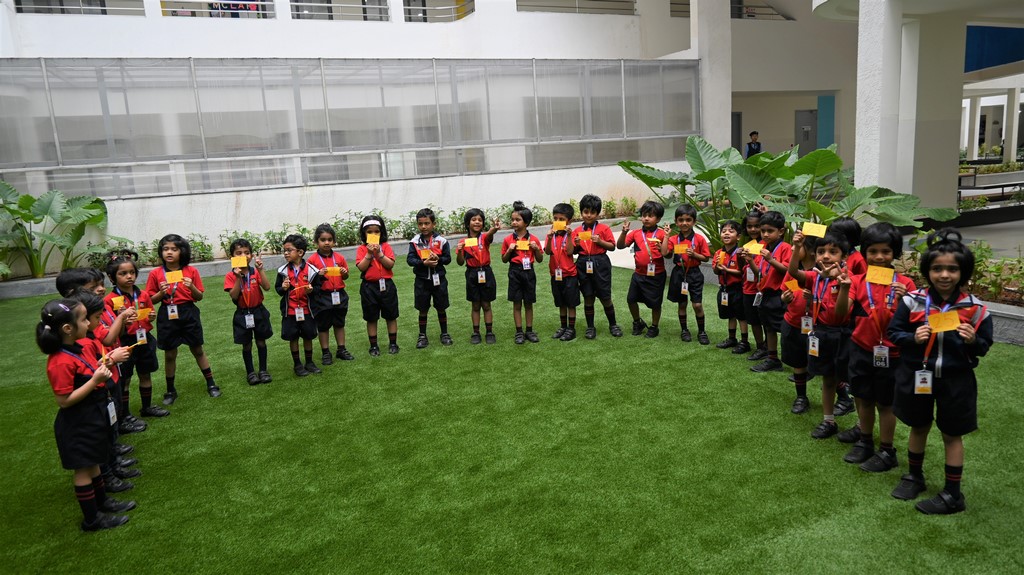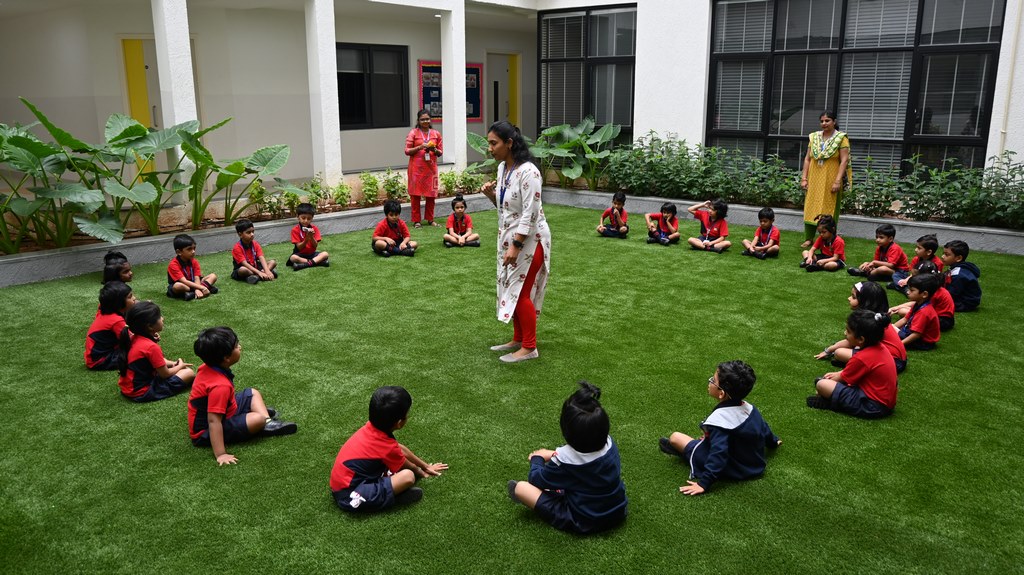Circle Time
Circle time, a crucial teaching method in early childhood education classrooms, fosters various developmental aspects in young learners. It creates a sense of community, promotes social skills, and enhances emotional development. Additionally, it cultivates self-awareness, fosters self-management, builds social awareness, nurtures relationship skills, and encourages responsible decision-making. Socio-Emotional Learning (SEL) aims to equip students with the skills to navigate challenges, establish positive relationships, and achieve their goals, ultimately promoting their success in both school and life.


During Circle Time, students actively participate in cooperative games that foster the development of crucial social skills like communication, empathy, and teamwork. These games necessitate children to collaborate towards a common objective, diverging from competitive games where winning is the sole focus. Cooperative games are specifically designed to promote social skills, enhance communication, and encourage children to work together harmoniously to achieve shared goals. They also cultivate teamwork, effective communication, and problem-solving abilities, enabling children to learn the art of collaboration.
Cooperative games in early education encompass:
The Human Knot
Children form a circle, holding hands with two others, and collaboratively untangle themselves without releasing their grasp.
All Aboard
Children work together to maintain balance on a platform, employing effective communication to prevent anyone from falling off.
Bean Bag Toss
Children take turns throwing bean bags into a target, collectively striving to achieve a predetermined number of points.
Tower Building
Children collaborate to construct a tower using various materials, aiming to achieve the greatest height before it topples.
Building activities
Children engage in cooperative building tasks using blocks, Legos, or other materials, requiring joint planning and construction.
Group games
Children unite their efforts to complete tasks or achieve specific goals, such as group scavenger hunts or relay races.
Role-playing games
Children act out different scenarios, learning to work together to solve problems. For instance, they may play “doctor” and collaboratively diagnose and treat a patient. When children learn to collaborate and support one another, it fosters the development of positive relationships and nurtures a sense of community within the classroom.
Benefits of Circle Time

Developing trust

Expressing gratitude

Working on problems

Having fun

Exploring new ideas

Developing moral values

Making children feel special

Helping children feel they belong

